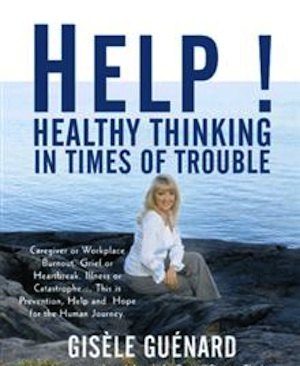 Many of the world’s greatest inventions and innovations came about in times of crisis.
Many of the world’s greatest inventions and innovations came about in times of crisis.
Sometimes it takes a wake-up call… an illness, or perhaps an injury, to make us change habits and practices that could be damaging our health. It is a conscious thought-action process to do so. It is difficult to change long-standing habits, but oh, so worth it.
People often refuse to ask for help. We can even delay reaching out and seeking help until it is too late, until greater harm has come to us, or our families. The ability to accept and when necessary to seek out, and accept the help of others is critical in times of crisis.
In the workplace, we are fortunate to have others with whom we can share our insight, and together as a group, think things through, ultimately developing the best decisions. In personal life, we often do not have this choice and must act individually, for safety in emergencies.
Several years ago, I was driving my teenage daughter to a friend’s house one spring evening. There are 300 lakes in our city, and we had had an unusually high amount of rain. Her friend lived quite a way out of the city, in a rural area. The ditches along the dirt road were overflowing with rainwater. We came upon a washout over the road, with runoff water flowing from one side of the road ditch, across to the other side. It was as if a small creek was flowing across the road. I slowed down, but incorrectly judged that it was safe to go across, veering left. In retrospect, I did have a gut feeling that I should not do so. I ignored instinct, and steered my vehicle left, as it seemed to me that was the spot with the least water.
This was a gravel road, and as soon as I began to drive through the water, the unstable ground gave way. The vehicle tipped over onto the driver’s side, and began to sink down into a deep gully of swiftly flowing spring water. The car came to rest on its side, with my daughter hanging above me, her seat belt holding her against her seat. Behind the steering wheel, I was at the lowest level. Mud and water began flowing into the vehicle. I knew we had to get out, and fast. The best way out was to go up and through the window of the door on the passenger side, which was now the top of the car. I told my daughter to roll down the window and climb out, quickly.
The towing company’s rig tired to pull the vehicle out of the gully, but mud had sucked the car in too deep. They sent another rig, huge boom truck, which was finally able to hoist the vehicle out, skyward. There are two lessons here. First, I ignored the instinct to avoid going through the water on the left, backup, turn around and go home. Secondly, the inspiration to move quickly, and pull ourselves up and out through the side window may have saved us from grim circumstances.
There is inherent danger, in times of crisis, in not acting on insight. If we are not confident in our own insights, we can certainly look to others to “bounce ideas off of,” looking to them for solutions. In the end, we will do ourselves no good, and will not help ourselves through crisis if we ignore inspiration.
This has been an excerpt from HELP ! Healthy Thinking in Times of Trouble, by Gisele Guenard.



















